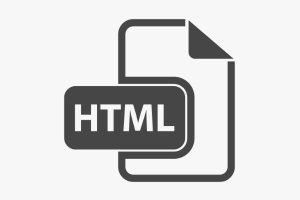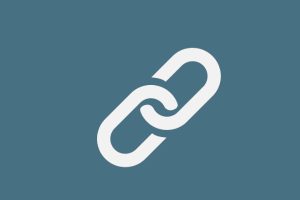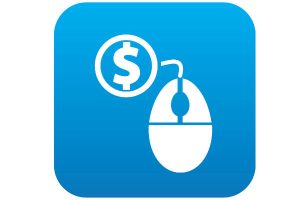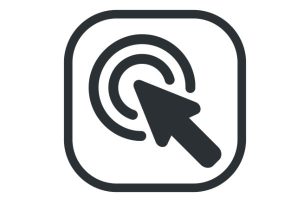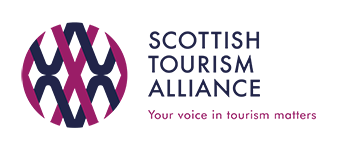POSH Tech-ionary: The A-Z of Understanding Technical Jargon
When you make your living online, it’s easy to forget that the average Joe doesn’t know their metadata from their tracking codes. Too often these techy terms are bandied about with little or no consideration for the tech-level of the person on the receiving end. Because we know that understanding technical jargon can be a little daunting, we’ve decided to make it a little easier for you. So before you abandon a conversation to consult tech support (which inevitable leads to further confusion), why not check out the POSH Tech-ionary.
- Above the Fold: Basically, anything you can see on a web page without scrolling down.
- AdWords: Google’s paid search program and the first PPC provider, which allows you to outrank your competition – once you’ve paid a small fee of course.
- Affiliate Marketing: Another word for piggyback marketing whereby you partner with other websites or companies to send traffic to your site.
- Algorithms: Like KFC’s 11 herbs and spices, algorithms are secret formulas search engines and social platforms use to rank your website or determine how many people to deliver your post to.
- Analytics: Data gathered from a website and its users, which gives online marketers insight into the online road ahead.
- Backlinks: Links from other websites and platforms which link back to your website.
- Big Data: An evolving term that basically means analysing large volumes of data to identify trends and patterns.
- Black Hat Practices: Shady SEO and social marketing practices like link farming or buying likes.
C
- Click Through Rate (CTR): The number of times someone clicks on your ad, in relation to the number of times your ad is shown.
- Community Management: Taking care of your online audience by liking, sharing, commenting, re-tweeting and engaging with your fans.
- Content Management System (CMS): An insanely clever platform that allows you to make changes to a website without obtaining a technical degree first.
- Conversion Rate: A metric that tells you how many people have clicked on your ad and completed the desired objective.
- Cookie: An online tracker and complete invasion of user privacy, willingly consented to by a user.
- Delisting: When a page or website is removed from a search engine’s index – usually because some black hat practices has caused it to be banned.
- Domain Name: A website’s main address. For example, poshagency.com
- E-Commerce: Or etail, as it is sometimes called, is a snazzy name for selling stuff online.
- EdgeRank: The name of Facebook’s algorithm that ranks your page and decides which posts will appear in your fans’ Newsfeed.
- Facebook Retargeting: The ability to deliver a Facebook ad to someone who has visited a specific page(s) on your website.
G
- Geo Targeting: As the name suggests, this is a smart way of delivering an online ad to someone who lives in a specific location.
- HyperText Markup Language (HTML): The programming language of a website. Which is why it is important to have a developer that is fluent in HTML.
- Hyperlinks: Much like a virtual portal, hyperlinks allow users to navigate to other websites or pages.
- Impressions: The number of times someone views a page that shows your ad.
- Index: A bunch of information search engines have gathered to help users find what they’re looking for.
- Internet of Things (IoT): Pretty much any device that connects to the Internet – i.e. warables, drivables, flyables.
- JavaScript: Another programming language that improves user experience and functionality on websites.
K
- Keywords: These are words or phrases people type into a search engine. Using the right keywords can attract the right traffic to a website. Kind of like how typing “understanding technical jargon” has led you to this blog.
- Keyword Stuffing: Since search engines love keywords, some SEOers started plugging pages with high-ranking keywords in order to drive traffic to a site. Thankfully Google’s algorithms have wised up since the dark keyword stuffing days.
- Landing Page: The first page a user lands on when clicking a link to your site.
- Link Building: Just like LinkedIn allows like-minded professionals to connect with you, link building allows like-minded websites to link to yours.
- Metadata: Simply put, metadata is data about data. It describes who, what, when, where and how a particular set of data was created.
- Natural Listings: Another word for organic results. In other words, search engine results that haven’t been paid for.
O
- On-page Optimisation: Making a page more search-friendly by using the right www.ordergenericpropeciaonline.com keywords, images and links at the right time.
- Organic Results: See “Natural Listings”.
- PageRank: In other words, where your page ranks on Google.
- Paid Search: a.k.a. Paid Placement, ensures you rank on the first page of a search engine when a user types in a certain term or keyword.
- PPC: Since you have to pay for Paid Placements (which could cost a pretty penny), you can ask search engines to only charge you once someone clicks on your ad or link.
- Pop Ups: A sneak attack online marketers use to get people to sign up for news letters, follow you on Twitter or like you on Facebook. It can be very annoying or very effective – there’s no middle ground.
- Quality Traffic: If you’re selling a luxury car, you try to generate leads from potential buyers who can afford your product, not someone straight out of Uni. It’s the same with online traffic. You want to attract people who want (and can afford) to do business with you now and in the future. This is what we like to call quality traffic.
- Real Simple Syndication (RSS): Technology that allows information to be shared easily on websites or with switched on users who have opted in.
- Results Page: What comes up when you search for something in Google. I.e. the results Google generates.
- Search Engines: Search engines (Google, Bing, Yahoo etc.) are places people go to search for things. Much like an encyclopedia or the yellow pages or yesteryear, they connect people with what they are looking for quickly and easily.
- Search Engine Optimisation (SEO): A fancy way of saying you’re making your site search-engine-friendly.
- Targeting: Making sure your website or ad is only seen by the right target market. It’s one of the easiest ways to ensure you’re driving quality traffic to your site.
- Tracking Code: A piece of code that is added to the URL of a website or page in order to measure online performance.
- Tracking Pixel: Specific to Facebook, this little piece of code is online marketing gold. By placing a small amount of code onto your website, you can create ads that target people who have visited a particular page. Pretty impressive wouldn’t you say?
U
- Uniform Resource Locator (URL): A crafty name for the words, letters and symbols that make up a web page’s address. For example: http://poshagency.com/blog/understanding-technical-jargon/
- Vanity Metrics: These are things like the number of likes you have on Facebook, the number of followers you have on Twitter or the number of people who click through from your ad. The figures may look good in your quarterly report, but if they aren’t adding value to your bottom line, what value do they ad?
- Viral Marketing: Fashionably called “word of mouse”, this is a form of marketing whereby an ad you create or the content you share goes viral. Within hours, your brand could reach hundreds of thousands of people around the world.
- White Hat Practices: Online tactics that have been identified as “best practice”. Unlike the quick results you’ll see with Black Hat Practices, the results are slow and steady. You’re also unlikely to be banned on Google for them.
- WordPress: Is a smart, simple, intuitive Content Management System that allows you to update, edit and optimise your website.
X
- Extensible Markup Language (XML): is a simple, flexible text format. It doesn’t actually do anything, but it’s what content developers use to enable users to define elements and pull the data they want to receive at their own pace. It is also, conveniently, the only “x” term we could find for our Tech-ionary.
- Yandex: Eastern Europe’s answer to Google, Yandex is primarily used in Russia and other countries formerly part of the Soviet Union. It’s the fastest growing search engine in the world and even has its own paid search program – Yandex Direct.
Z
- Z-index: A zinger of a technical term that will take a whole new Tech-ionary to explain. Our advise if it comes up in a conversation, smile and nod along. Sometimes even the best of us get stumped when it comes to understanding technical jargon.
So there you have it. A quick and easy guide to understanding technical jargon. While we’ve only scratched the techy surface, the POSH Tech-ionary should help you hold your own in almost any online-driven discussion.






